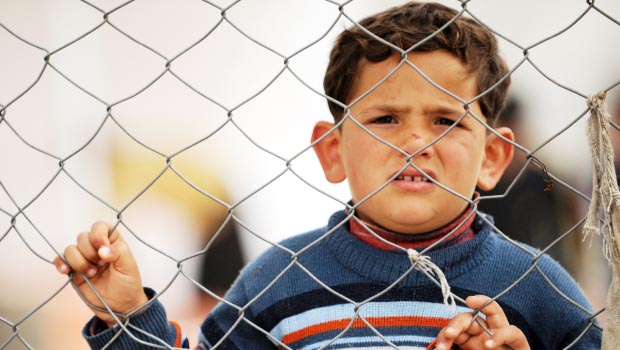An insider view into the new TV production Halim
One of the central figures of his age, he was an intricate part of the government. Despite dangers, he never traveled with a motorcade or even a bodyguard. I became absorbed in him for two reasons: this is a man who seemed to have no fear and this is the man I would have to become.
When I was first offered a role in the big-budget television production about legendary singer and actor Abdel-Halim Hafez, kicking-off this Ramadan, I was over the moon. Sami Sharaf, second-in-command after former President Gamal Abdel-Nasser was a prominent government official in the 1960s. He was the number one man; Nasser depended on him more than anyone else. In fact, Nasser had handpicked Sharaf.
When I took on the task of playing this man, the first thought that occurred to me was that I had to meet him. As an actor, just launching a career in cinema and TV, this was an incredibly rewarding experience.
Nasser gave me the ability to combine being a politician and being a solider. a sort of a politicized soldier, Sharaf told me when we sat together chatting in his apartment. I explained to Sharaf I was playing him in the eagerly awaited TV series, and that Nasser and his cohorts (being central figures in the life of Halim, nicknamed “a child of the revolution ) would be portrayed in this upcoming production.
Having the honor to interview such a legendary figure, and then portray him, left me with a vast amount of background about this time of history.
Sharaf s office was considered a filter in the 1960s; all the country’s internal matters and policies would pour into his office and then get reported to Abdel-Nasser. In spite of being very close to Abdel-Nasser, Sharaf saw him as a guru or a mentor and perceived himself as an apprentice.
On average days, Sharaf used to go to work at regular hours and then make it home in time to have lunch with his family. But with the war of 1967, when Egypt engaged in military combat with Israel, a huge shift took place, I did not leave my office from May 15, 1967 until April 1968, Sharaf remembered.
During this significant era, his life concerns changed, as he tells me how he became a 24/7 working machine. He used to sleep in his office for a maximum of three hours, a brief respite before he had to wake up the following day and delve into the almost-deafening clamor of work.
I never had a fixed time at which I went home, I never knew which of my children was in which school and in which grade; I never knew how they were brought up. Sharaf said, praising his wife for being “such a responsible and supportive woman.
Sharaf s relationship with Abdel-Halim Hafez was different.
Halim was considered one of our office members; he used to come whenever he desired, said Sharaf. He added that Halim used to absorb the mood of the revolution so that he could sing his patriotic songs. He stayed at the office for hours on end with Sharaf.
Halim used to consider himself a son of the revolution, said Sharaf. At times when Abdel-Nasser was busy, Halim would have Sharaf deliver his messages to him.
With this background in mind, I felt I was ready to play Sharaf in the Ramadan TV series presently entitled “Al-Andaleeb A Az El Nas (Halim, Beloved of the People).
In depth preparation is essential. As easy as the role might seem to the audience in terms of performance; I always set out to study my character, his gestures, and the way he talks and walks. It is integral and it always improves my performance.
I set prerequisites for the role I am playing. I first had to interview the character. Sharaf offered to show me photo albums of himself through different phases of his work and personal life, which benefited me very much. Second, I watched TV interviews with Sharaf; saw how he responded, his facial expressions, body language.
Third, I read the whole script for the series and talked to director Gamal Abdel Hamid about the angle from which I would approach the character.
My intense preparations gave me the feeling that I was Sami Sharaf in almost all my scenes; I really believed I was him while shooting. Belief is also a key.
Most of my scenes are with my colleague, a brother to me really, actor Magdy Kamel, who plays Gamal Abdel-Nasser. Beyond his great sense of humor, lies an extremely talented actor that I benefited from greatly.
We used to have little chats and joke around while rehearsing or in the make-up room. We d rehearse the scenes more than twice before even entering the set.
Though I didn’t have many scenes with Shady, who plays Abdel-Halim Hafez, we still became good friends. We enjoyed our time on location, having long chats about our acting, roles and future expectations. He also sang his latest songs to be released so I could give him my opinion on them.
For me however, the most memorable scene of this El-Adl Group production is Abdel-Nasser s death.
This scene was shot at 5:30 a.m. after 12 straight hectic hours of shooting.
The scene was scheduled last and was considered the most important, as it included eight major actors at one time and featured a time of great depression and sadness when the people of Egypt felt bereft of their leader and father.
Words like emotional, deep and big don’t seem to accurately describe it. But then again, it was the essence of the groundbreaking experience Halim.
Halim is scheduled to air on Egyptian television during the month of Ramadan 2006.

